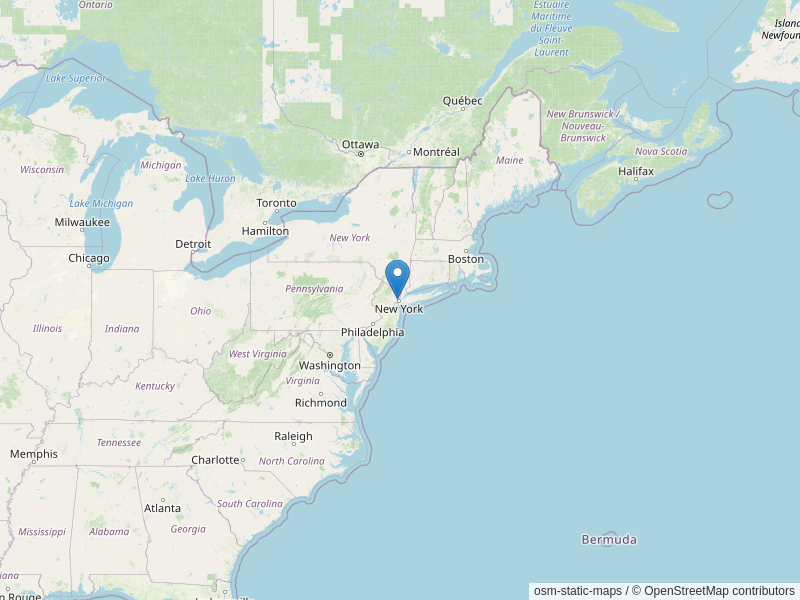FAQ on Study, Life & Research in Germany

Starting Out
Not necessarily. On daad.de, you can find the International Degree Programs at German universities that let you take German language courses parallel to the degree course itself, because these degree courses are partly or even completely instructed in English. For all other degree courses you will be required to take a German language proficiency test for admittance. See daad.de for more information.
Students without strong German skills who are interested in short-term programs should look into German university summer courses on daad.de, some of which are in English and almost always have a language-learning component. But regardless of program requirements, any experience in Germany is bound to be more fulfilling if the student has – or is willing to acquire – at least a basic level of German ability.
Each year, the Center for Higher Education Development (CHE) publishes Germany’s most comprehensive ranking of higher education institutions. This multidimensional ranking uses up to 40 different indicators to provide a differentiated and detailed view of the strengths and weaknesses of German higher education by subject areas. This is complemented by a research ranking published every fall to provide specific information on the research contribution of German higher education institutions. The CHE rankings can help you find the top-ranked German universities in every subject area.
Hochschule is the generic term used to refer to any institutions of the German higher education system.
A Universität is a doctorate-granting institution. After completing an intermediate examination, Universität students work towards the final examination, leading to a Bachelor’s or Master’s degree or the Staatsexamen, depending on the area of study. A Promotion (PhD) can follow.
Originally, a Technische Universität restricted its teaching to technical and engineering disciplines. However, in the course of time, technical universities have developed into more comprehensive higher education institutions. Hence, students can now also study arts and humanities degree courses at the technical universities. Nevertheless, the focus of their activities continues to be directed towards engineering and science.
A Fachhochschule is an institution with emphasis on professional and practical training in a specialized area. After completing eight semesters (which may include one or two semesters of practical work or internships), the student receives a Diplom. These smaller, more specialized institutions are becoming increasingly popular. A Kunsthochschule and a Musikhochschule are like fine arts schools or music conservatories. They offer curricula in the fine arts and music, respectively, or in related professional areas.
Research Institutions: Additionally, there are many respected institutions that specialize in advanced research only, for example the institutes of the Max Planck Society and the Fraunhofer Society, as well as several research institutions of federal agencies. Click here to visit research-in-germany.de for more information about the major research institutions in Germany.
Institutions of higher education in Germany usually do not charge any tuition fees. But education policy in Germany is increasingly seeking to change this. A number of states now charge tuition fees for students who study for considerably longer than the stipulated period for course completion.
Apart from the relatively low semester fees (generally no more than 100-250 EUR), students at German universities are not required to pay from their own pockets at any time. Student fees pay for student services association as well as the student union. In many university towns and cities, the student fee also buys you a ticket for free local transportation for the semester.
Through DAAD:
- Research Internships in Science and Engineering (RISE) Germany arranges paid summer internships for North American undergraduates to help German doctoral candidates with research projects at German universities.
- The EMGIP Program (Émigré Memorial German Internship Program) offers internship opportunities for US and Canadian students in the German parliament, the Bundestag.
DAAD is also the international representative of the IAESTE Technical Internship Program, which places university students into paid technical internships in approximately 40 of our 80+ member-country network. Internships are open to college sophomores, juniors, seniors, and grad students pursuing a degree in science, engineering, mathematics, architecture, computer science, or other technical fields.
In addition, the following institutions will provide contacts and give advice regarding internships in Germany:
- AIESEC-Germany
- Bundestag Internship Program
- Congress-Bundestag Youth Exchange Program
- Council on International Educational Exchange
- Cultural Vistas
- Friedrich Ebert Stiftung
- German American Partnership Program (GAAP)
- Internabroad.com
- Institut für Auslandsbeziehungen
- One-to-one-international.de
- Youth for Understanding
Enrolling at a German University
No. The official semester dates are:
Winter Semester: October 1st — March 31st
Summer Semester: April 1st — September 30th
However, these days may vary from state to state and from institution to institution, which is why we recommend checking the website of the university you are interested in.
The entrance application typically must be submitted by January 15th each year for the summer semester (beginning on April 1st) and by July 15th for the winter semester (beginning on October 1st). Please go to the universities’ websites to find out their application deadlines. Application deadlines may be sooner for international students and for graduate applications.
Students from outside Germany now have the opportunity to apply to several universities with only one set of documents through the Application Services for International Students (uni-assist). Uni-assist will check that all necessary documents have been included and that they meet the necessary formal requirements, and will then forward them on to the respective universities. The “Application Services for International Students” is a joint venture of DAAD, the Conference of University Rectors and 50 German universities. For a complete list of all Uni-assist members click here to visit the uni-assist website.
Here are some guidelines for you if you don’t want to participate in an organized study-abroad program and would prefer to design your own semester or year of study in Germany.
- Start your preparations early!
- Make sure that your home institution will give you credit for your study, internship or research project.
Get in touch with faculty members in Germany and find a mentor. If you have trouble finding a contact in Germany, speak to your academic advisors for suggestions. Your application will stand a much better chance of being approved if you can provide evidence of an established contact at your chosen German host institution.
If you plan to directly enroll at a German university in order to complete a full degree program in a popular field of study, there is a chance that you might have a problem with the numerus clausus. The term numerus clausus refers to policies of limited admission for overcrowded fields. Students from Germany and the European Union must undergo a selection procedure if they want to enroll in a degree program in an especially popular field. Students from other countries are not subject to this procedure. But that doesn’t mean that an unlimited number of students are accepted. In subjects such as medicine and psychology, for example, only a fixed number of foreigners who are not EU citizens are admitted. Here the selection process is subject to the average grade laid down by the institution of higher education.
However, if you are planning to stay only one semester or year in Germany, and therefore are not a degree candidate, you will usually have little or no difficulty obtaining admission.
Recognition of Degrees Abroad
Unfortunately, there is no generally valid answer to this question. You should certainly contact the higher education institution of your choice in Germany. The respective departments or faculties govern these questions independently. Please visit daad.de for a list of all degree programs in Germany.
Critics have long decried the lengthy duration of German universities’ degree programs and the incompatibility of German degrees internationally. The Bologna Process, creating the European Higher Education Area, enhances academic exchange not just within Europe but also between the U.S. and Germany. Initiated in 1999 to reinforce the international competitiveness of the European system of higher education, the Bologna Process was the beginning of the implementation of the two-tiered system of Bachelor’s and Master’s degrees. The new system promises to broaden the opportunities for exchange, especially for graduate students.
In this new system, one can obtain a Bachelor’s degree after only six semesters. Students may then continue on for another four semesters and earn a Master’s degree. In some cases, e.g. in the fields of teaching, medicine and law, the traditional German degree Staatsexamen will continue to serve as the standard final qualifications for German programs of study despite their incompatibility abroad. It has been left up to individual institutions to decide whether to offer the new qualifications alongside the traditional German degrees.
ECTS (European Credit Transfer System) is the name of the system which the European Commission introduced to make it easier for students to complete coursework abroad for credit. Many institutions in the European Union have already introduced the ECTS in some or all subjects. After completing your studies abroad, your academic achievements (including your grades) are transferred by the ECTS and can then be recognized in North America.
If the German institution you attend does not grant ECTS credits, you should make sure the professors and international office staff at your German institution certify that you have attended their courses – and keep all of your course certificates and papers. These will help you to prove what, when and how you studied in Germany after you return to your home institution. To ensure that your credits transfer, speak with your advisor at your home university before you leave for your study abroad semester(s).
For more information on ECTS, please visit the European Commission website at ec.europa.eu and the daad.de website.
International Students and Scholars
The programs on www.daad.org and www.daad-canada.ca serve the academic communities in the United States and Canada only. In most cases international students and scholars at North American universities are eligible for DAAD programs if they meet certain requirements. Learn more here about your eligibility as an international student.


















